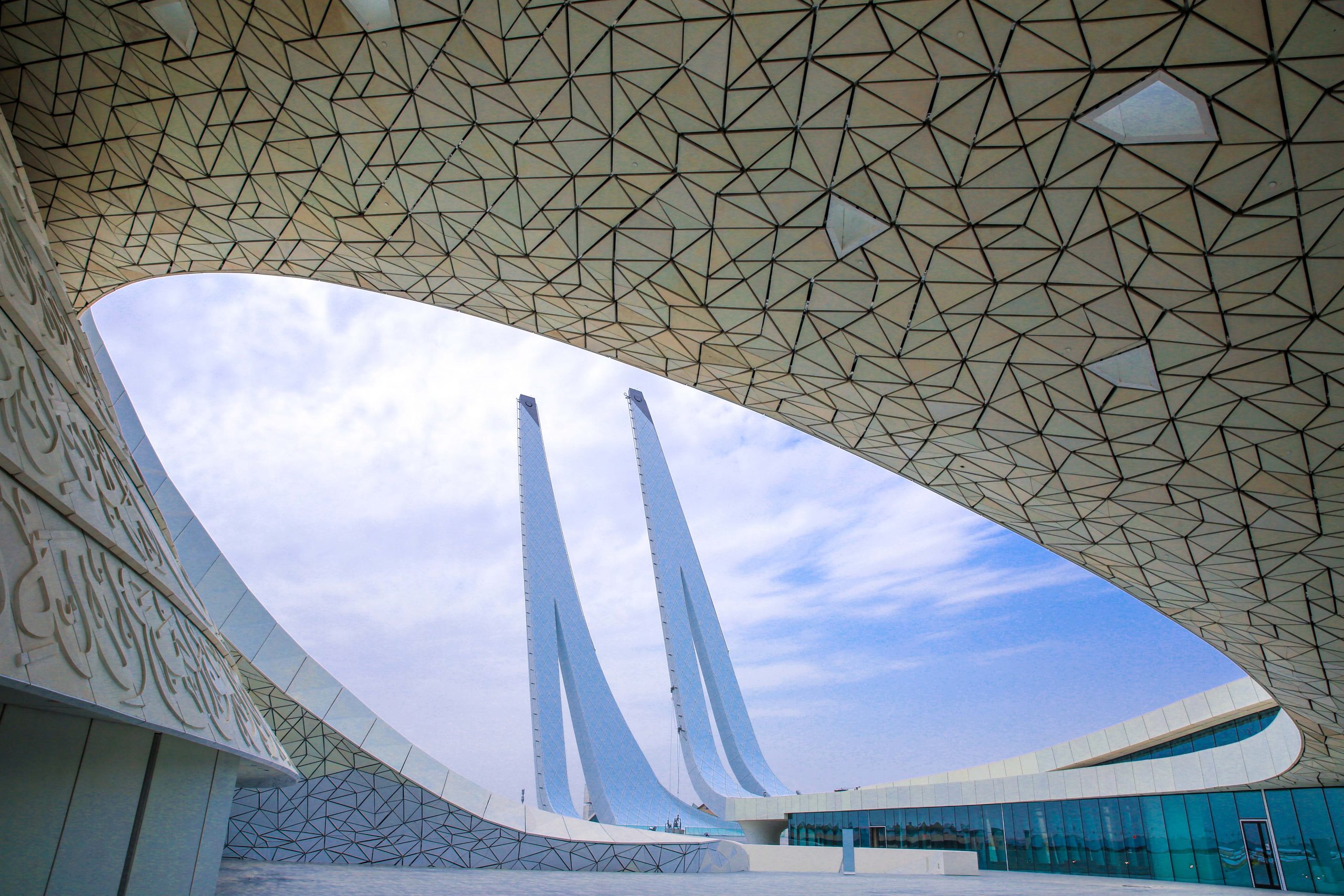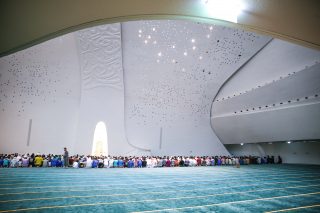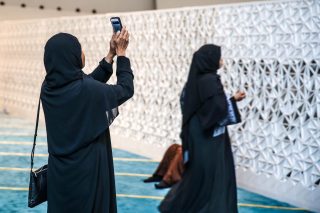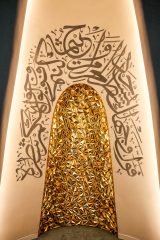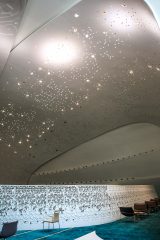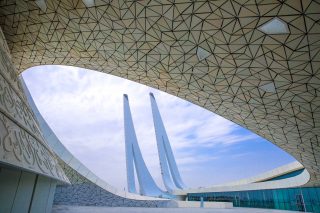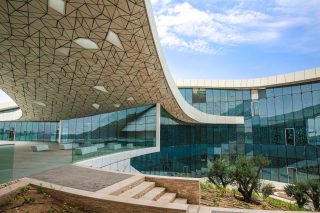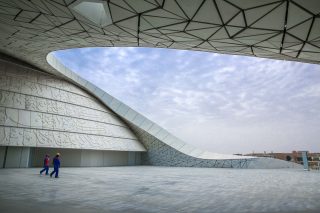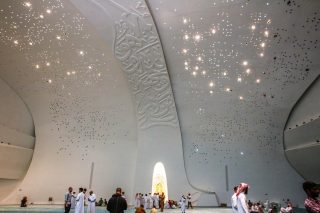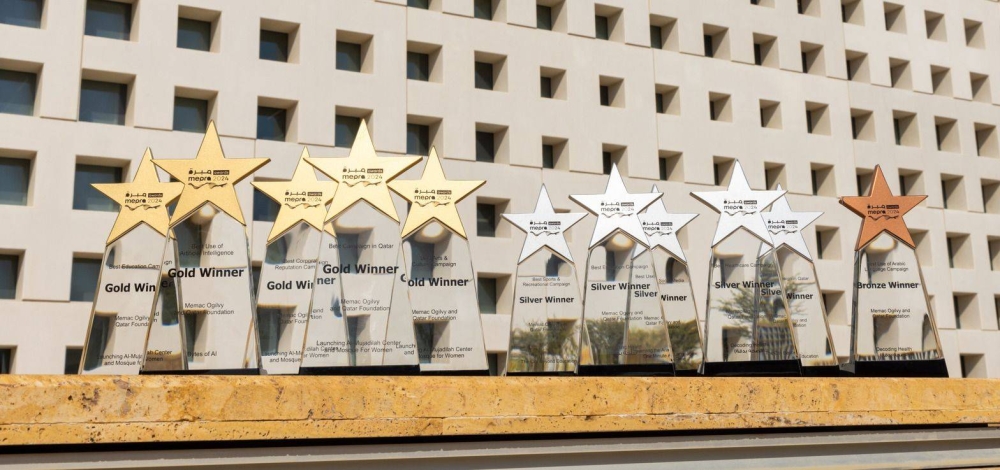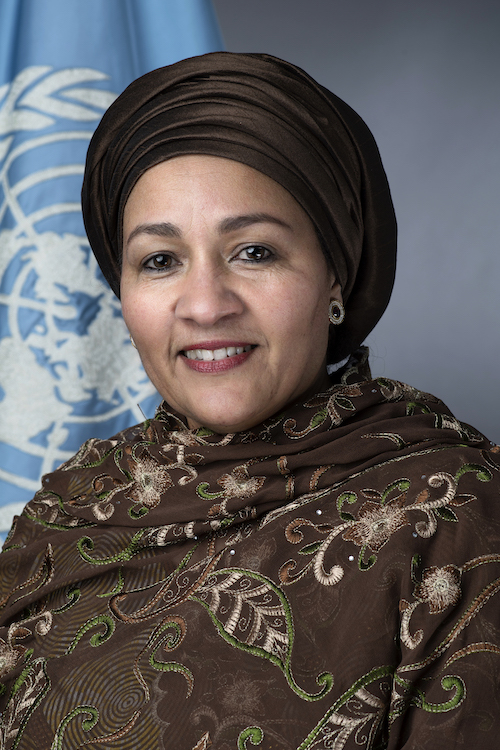All photos by Chantelle D’mello
Three years after breaking ground, the Qatar Faculty of Islamic Studies has officially opened Education City’s first mosque.
Inaugural Friday prayer services were held last week, and were attended by several hundred students and Qatar Foundation Chairperson Sheikha Moza bint Nasser.
The mosque, a large white cavernous structure with Quranic verses embossed into its large ceiling, is dotted with small lights reminiscent of twinkling stars, and has the capacity to hold some 1,800 people in its indoor prayer halls and outdoor courtyard.
The main (male) prayer room on the first floor features an in-house, as yet unstocked library, and a large gilded mehrab in a Qur’an verse-lined alcove.
Upstairs, a female gallery room complete with a separate seating area is sectioned off from the main prayer room by a high wall that separates the two genders.

The mosque rests on five structural pillars and is decorated with verses. Underneath, water flows from four streams originating from a garden that lines the perimeter of the building.
According to Art Scape, the project management company overseeing the construction, the gardens are based on an interpretation of paradise, with the streams representing the rivers of wine, milk, honey and water, and the pillars representing the five tenets of Islam.
Meanwhile, two large minarets jutt out of one side of the structure, rising some 90m in the air in the direction of Makkah.
Islamic calligraphy forms the heart of the building, inscribed on almost every element of the structure’s surface, from roofs to ceramic tiles to glass windows.
Faculty of Islamic Studies
In addition to the mosque, the building also serves some 114 students enrolled in the Faculty of Islamic Studies. There are 54 classrooms bordering small-scale courtyards with inscribed historical botanical and scientific texts, faculty offices and a first-floor library.
The latter, once stocked, is expected to hold some 100,000 titles.
Currently, the center confers Master’s degrees in Islamic Studies in contemporary fiqh, public policy in Islam, Islamic finance, contemporary Muslim thought and societies, urban design and architecture in Islamic societies and Islamic studies in comparative religions.
Three diploma programs in Islamic Finance, Public Policy in Islam, and Islamic Studies are also offered.
The building also houses five research centers – the Al Qaradawi Centre for Islamic Moderation and Renewal, the Centre for Islamic Economics and Finance, the Centre for the Study of Contemporary Muslim Societies and the Mohammed Bin Hamad Al Thani Centre for Muslim Contribution to Civilization, in addition to the Center for Islamic Legislation and Ethics set up in 2011 to “address Islamic legislation and ethics.”
Thoughts?

